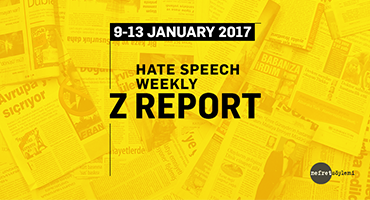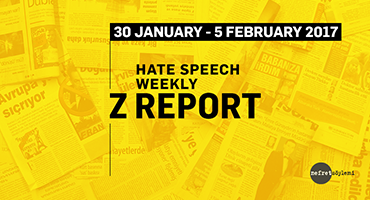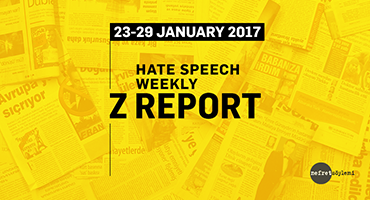Within June 15-21, 2020, three articles that generate hate speech were selected from print media. You can find three articles that contain hate speech against Greeks, Jews, and Syrians as well as the analyses written about them below.
1.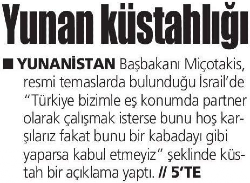
The article published in İstiklal with the title “Greek arrogance” reports Greek Prime Minister Mitsotakis’ statement to a newspaper by targeting Greek identity with such a title. Thus, it reinforces negative judgments about Greeks and incites enmity against this identity. |
2.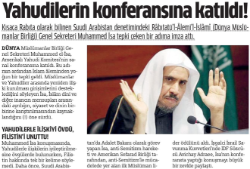
The article published in Milli Gazete with the title “He attended the Jew conference” criticizes the Muslim World League Secretary-General Muhammad bin Abdul Karim Issa for attending the conference organized by the American Jewish Committee. Throughout the article, Jewish identity is presented as an enemy with remarks such as “He attended the Jew conference” and “He praised the relations with Jews and forgot about Palestine”. In this way, enmity against Jews is fomented. |
hr />
3.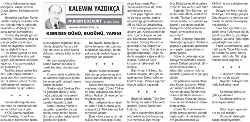
Muhsin Bozkurt, in his column titled “Past, present and future of Cyprus” associates Greek identity with violence in Cyprus as we see in the following remark: “Who hasn’t heard of Greek atrocity? If Turkish army couldn’t have come to rescue, no Turk would have been left alive on the island!”. He also reinforces negative judgments about Greeks and the British with the following sentences: “Though we see a Cypriot Greek-Greek duo before us, they are just pawns” and “Because being owned by Greeks amounts to being possessed by European states, especially the British and the US.” |
1. Within the scope of the media monitoring work focusing on hate speech, all national newspapers and around 500 local newspapers are monitored based on pre-determined keywords (e.g. Traitor, apostate, refugee, Christian, Jewish, separatist, etc.) via the media monitoring center. While the main focus has been hate speech on the basis of national, ethnic and religious identities; sexist and homophobic discourses are also examined as part of the monitoring work.


